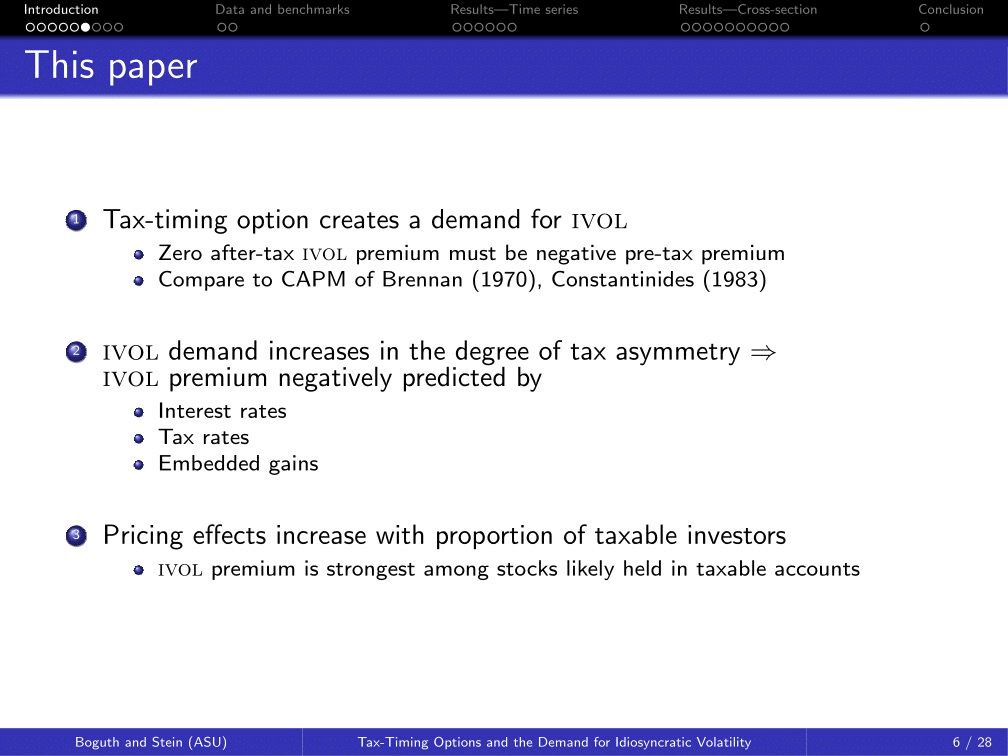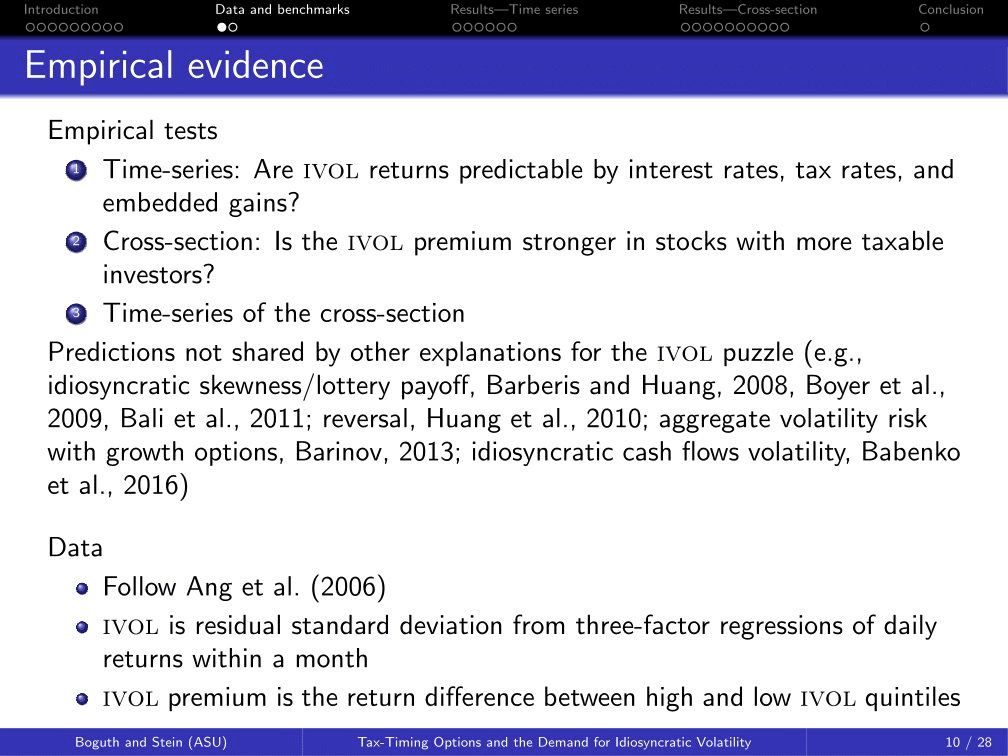-
This is a great paper from @SamHartzmark and David Solomon. I saw David present it a few years, and @TRamadorai helped remind me about it recently. Basically, many investors seem not to understand how when a firm pays dividends, it lowers the share price. 1/6 @JofFinance/1129044533466009600
-
I’d been thinking about this recently in part because media and money management sites don’t always do a good job communicating about dividends. Actually, often they do a bad job. Most cover just price changes. E.g., you don’t see much on $SP500TR. 2/6 @lukestein/1113905823032287232
-
And… dividends matter for returns. Like 3% per year (1980–2018)!¹ ¹You see different numbers based on assumptions about exactly when and how dividends get reinvested. 3/6 @lukestein/1114299548375982081
-
Of course, receiving dividends isn’t the same as cap gains because…TAXES. Many investors pay lower rates on capital gains than dividends. A $1 dividend therefore needn’t drop stock price $1. This underlies Florian Schulz’s very nice AER comment. 4/6 aeaweb.org/articles?id=10.1257/aer.20131416
-
In a working paper, Oliver Boguth and I use Schulz’s suggested regressions of dividend-date price changes to identify stocks more likely held by taxable investors to help argue that cap gains taxes help explain the idiosyncratic volatility puzzle. 5/6 public.asu.edu/~lstein2/research/boguth-stein-tlhivol.pdf
-
Final thought: Especially given the behavioral issues (as in @SamHartzmark and Solomon), media biases, and tax issues (as in my paper) at play, dividends are an area where effective investment performance feedback or fin advice may be tough. 6/6 @lukestein/1128489114158784512
 lukestein’s Twitter Archive—№ 2,696
lukestein’s Twitter Archive—№ 2,696
